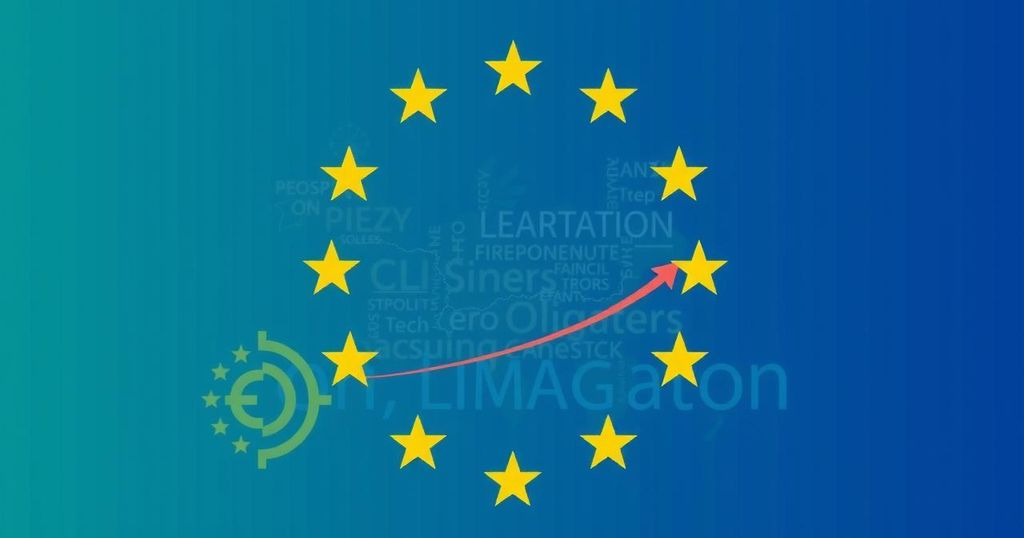During COP29 climate talks in Baku, the EU increased its financial offer to poor nations from US$250 billion to US$300 billion annually, aiming to alleviate climate change impacts. The initial offer was rejected by developing nations as inadequate, and ongoing negotiations involve complex dynamics between financial commitments and political realities. The draft deal proposes a total of US$1.3 trillion per year for climate action, primarily from private sources, amid calls for more substantial funding from wealthy countries.
The European Union (EU) has escalated its financial proposal to assist impoverished nations heavily impacted by climate change. The revised offer, now set at US$300 billion annually, aims to revitalize faltering negotiations during the COP29 climate talks taking place in Baku, Azerbaijan. This increase comes after developing countries vehemently rejected an initial offer of US$250 billion per year, which they deemed insufficient given the intensifying climate crisis.
In negotiations extending into a third day, it was reported that the EU urges wealthy nations, which include the United States, Britain, and Japan, to adopt this enhanced financial commitment, conditional upon progress in broader agreements aimed at mitigating climate change. Importantly, the EU advocates for an annual assessment of global advancements in diminishing reliance on fossil fuels, a proposal facing resistance from Saudi Arabia and others.
Irish Climate Minister Eamon Ryan expressed optimism regarding reaching a consensus, emphasizing the necessity of a robust agreement to provide hope and ensure multilateral cooperation in addressing the climate crisis. Additionally, Ali Mohamed, representing the African Group of Negotiators, criticized the previous financial offer and cautioned that failure to negotiate a suitable deal could jeopardize the outcome of COP29. The ongoing discussions reflect broader tensions, as many developed nations resist escalating their financial obligations amid rising political opposition to climate initiatives.
The draft agreement weaves in an ambitious overall target of US$1.3 trillion annually to address climate challenges, shifted heavily towards private funding rather than direct government aid. Developing nations have articulated demands exceeding US$500 billion, sighting inflationary pressures on financial commitments from wealthier countries; however, many in the developed world assert that expectations for increased direct funding are politically untenable, especially post the recent election of President-elect Donald Trump, known for his skepticism towards climate change funding.
As global temperatures continue to rise, the urgency for climate action becomes increasingly paramount, particularly for developing nations disproportionately affected by climate-related disasters such as droughts and floods. Negotiations at the United Nations climate conferences provide a platform for countries to discuss financial assistance and cooperative measures to mitigate climate change. The disparities in financial expectations between developed and developing nations highlight the complexities of international climate agreements, often leading to protracted negotiations characterized by differing political landscapes and economic realities.
The discussions in Baku at the COP29 conference reflect a significant negotiation turning point, with the EU seeking to enhance financial offerings to developing nations struggling with climate change effects. As negotiations progress, the balance between financing commitments and geopolitical realities presents a central challenge for participants. Ultimately, the outcomes of these discussions are crucial to establishing a path towards effective global climate action and support for the most vulnerable nations.
Original Source: www.rfi.fr






